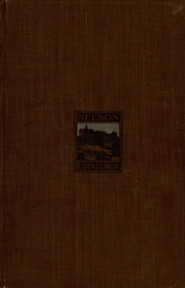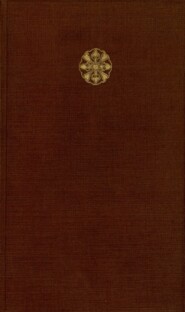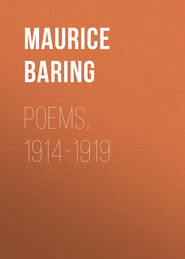По всем вопросам обращайтесь на: info@litportal.ru
(©) 2003-2024.
✖
Overlooked
Настройки чтения
Размер шрифта
Высота строк
Поля
3
As they walked into the large hotel dining-room, Kathleen was conscious that everyone was looking at her, except Lancelot, if he was there, and she felt he was there. Arkright and Count Tilsit were waiting for them at their table and stood up as they walked in. They were followed almost immediately by Princess Oulchikov, whose French origin and education were made manifest by her mauve chiffon shawl, her buckled shoes, and the tortoise-shell comb in her glossy black hair. Nothing could have been more unpretentious than her clothes, and nothing more common to hundreds of her kind, than her single row of pearls and her little platinum wrist-watch, but the manner in which she wore these things was French, as clearly and unmistakably French and not Russian, Italian, or English, as an article signed Jules Lemaître or the ribbons of a chocolate Easter Egg from the Passage des Panoramas. She looked like a Winterhalter portrait of a lady who had been a great beauty in the days of the Second Empire.
Her married life with Prince Oulchikov, once a brilliant and reckless cavalry officer, and not long ago deceased, after many vicissitudes of fortune, ending by prosperity, since he had died too soon after inheriting a third fortune to squander it, as he had managed to squander two former inheritances, and her at one time prolonged sojourns in the country of her adoption had left no trace on her appearance. As to their effect on her soul and mind, that was another and an altogether different question.
Mrs. Knolles, whose harmonious draperies of black and yellow seemed to call for the brush of a daring painter, sat at the further end of the table next to the window, on her left at the end of the table Arkright, whom you would never have taken for an author, since his motto was what a Frenchman once said to a young painter who affected long hair and eccentric clothes: "Ne savez-vous pas qu'il faut s'habiller comme tout le monde et peindre comme personne?" On his other side sat Princess Oulchikov; next to her at the end of the table, Kathleen, and then Count Tilsit (fair, blue-eyed, and shy) on Mrs. Knolles's right.
Kathleen, being at the end of the table, could not see any of the tables behind her, but in front of her was a gilded mirror, and no sooner had they sat down to dinner than she was aware, in this glass, of the reflection of Lancelot Stukely's back, who was sitting at a table with a party of people just opposite to them on the other side of the room. There was nothing more remarkable about Lancelot Stukely's front view than about his back view, and that, in spite of a certain military squareness of shoulder, had a slight stoop. He was small and seemed made to grace the front windows of a club in St. James's Street; everything about him was correct, and his face had the honest refinement of a well-bred dog that has been admirably trained and only barks at the right kind of stranger.
But the sudden sight of Lancelot transformed Kathleen. It was as if someone had lit a lamp behind her alabaster mask, and in the effort to conceal any embarrassment, or preoccupation, she flushed and became unusually lively and talked to Anikin with a gaiety and an uninterrupted ease, that seemed not to belong to her usual self.
And yet, while she talked, she found time every now and then to study the reflections of the mirror in front of them, and these told her that Lancelot was sitting next to Donna Laura Bartolini. The young man she had seen talking to Donna Laura was there also. There were others whom she did not know.
Mrs. Knolles was busily engaged in thawing the stiff coating of ice of Count Tilsit's shyness, and very soon she succeeded in putting him completely at his ease; and Arkright was trying to interest Princess Oulchikov in Japanese art. But the Princess had lived too long in Russia not to catch the Slav microbe of indifference, and she was a woman who only lived by half-hours. This half-hour was one of her moment of eclipse, and she paid little attention to what Arkright said. He, however, was habituated to her ways and went on talking.
Mrs. Knolles was surprised and pleased at her niece's behaviour. Never had she seen her so lively, so gay.
"Miss Farrel is looking extraordinarily well to-night," Arkright said, in an undertone, to the Princess.
"Yes," said Princess Oulchikov, "she is at last taking waters from the right source." She often made cryptic remarks of this kind, and Arkright was puzzled, for Kathleen never took the waters, but he knew the Princess well enough not to ask her to explain. Princess Oulchikov made no further comment. Her mind had already relapsed into the land of listless limbo which it loved to haunt.
Presently the conversation became general. They discussed the races, the troupe at the Casino Theatre, the latest arrivals.
"Lancelot Stukely is here," said Mrs. Knolles.
"Yes," said Kathleen, with great calm, "dining with Donna Laura Bartolini."
"Oh, Laura's arrived," said Mrs. Knolles. "I am glad. That is good news. What fun we shall all have together. Yes. There she is, looking lovely. Don't you think she's lovely?" she said to Arkright and the Princess.
Arkright admired Donna Laura unreservedly. Princess Oulchikov said she would no doubt think the same if she hadn't known her thirty years ago, and then "those clothes," she said, "don't suit her, they make her look like an art nouveau poster." Anikin said he did not admire her at all, and as for the clothes, she was the last person who should dare those kind of clothes; her beauty was conventional, she was made for less fantastic fashions. He looked at Kathleen. He was thinking that her type of beauty could have supported any costume, however extravagant; in fact he longed to see her draped in shimmering silver and faded gold, with strange stones in her hair. Count Tilsit, who was younger than anyone present, said he found her young.
"She is older than you think," said Princess Oulchikov. "I remember her coming out in Rome in 1879."
"Do you think she is over fifty?" said Kathleen.
"I do not think it, I am sure," said the Princess.
"Her figure is wonderful," said Mrs Knolles.
"Was she very beautiful then?" asked Anikin.
"The most beautiful woman I have ever seen," said the Princess. "People stood on chairs to look at her one night at the French Embassy. It is cruel to see her dressed as she is now."
Count Tilsit opened his clear, round, blue eyes, and stared first at the Princess and then at Donna Laura. It was inconceivable to his young Scandinavian mind that this radiant and dazzling creature, dressed up like the Queen in a Russian ballet, could be over fifty.
"To me, she has always looked exactly the same," said Arkright. "In fact, I admire her more now than I did when I first knew her fifteen years ago."
"That is because you look at her with the eyes of the past," said the Princess, "but not of a long enough past, as I do. When you first saw her you were young, but when I first saw her she was young. That makes all the difference."
"I think she is very beautiful now," said Mrs. Knolles.
"And so do I," said Kathleen. "I could understand anyone being in love with her."
"That there will always be people in love with her," said the Princess, "and young people. She has charm as well as beauty, and how rare that is!"
"Yes," said Anikin, pensively, "how rare that is."
Kathleen looked at the mirror as if she was appraising Donna Laura's beauty, but in reality it was to see whether Lancelot was talking to her. As far as she could see he seemed to be rather silent. General conversation, with a lot of Italian intermixed with it, was going up from the table like fireworks. Kathleen turned to Count Tilsit and made conversation to him, while Anikin and the Princess began to talk in a passionately argumentative manner of all the beauties they had known. The Princess had come to life once more. Mrs. Knolles, having done her duty, relapsed into a comfortable conversation with Arkright. They understood each other without effort.
The Italian party finished their dinner first, and went out on to the terrace, and as they walked out of the room the extraordinary dignity of Donna Laura's carriage struck the whole room. Whatever anyone might think of her looks now, there was no doubt that her presence still carried with it the authority that only great beauty, however much it may be lessened by time, confers.
"Elle est encore très belle," said Princess Oulchikov, voicing the thoughts of the whole party.
Mrs. Knolles suggested going out. Shawls were fetched and coffee was served just outside the hotel on a stone terrace.
Soon after they had sat down, Lancelot Stukely walked up to them. He was not much changed, Kathleen thought. A little grey about the temples, a little bit thinner, and slightly more tanned – his face had been burnt in the tropics – but the slow, honest eyes were the same. He said how-do-you-do to Mrs. Knolles and to herself, and was presented to the others.
Mrs. Knolles asked him to sit down.
"I must go back presently," he said, "but may I stay a minute?"
He sat down next to Kathleen.
They talked a little with pauses in between their remarks. She did not ask him how long he was going to stay, but he explained his arrival. He had come to consult the malaria specialist.
"We have all been discussing Donna Laura Bartolini," said Mrs. Knolles. "You were dining with her?"
"Yes," he said, "she is an old friend of mine. I met her first at Cairo."
"Is she going to stay long?" asked Mrs. Knolles.
"No," he said, "she is only passing through on her way to Italy. She leaves for Ravenna to-morrow morning."
"She is looking beautiful," said Mrs. Knolles.
"Yes," he said, "she is very beautiful, isn't she?"
Then he got up.
"I hope we shall meet again to-morrow," he said to Kathleen and to Mrs. Knolles.
"Are you staying on?" asked Mrs. Knolles.
"Oh, no," he said. "I only wanted to see the doctor. I have got to go back to England at once. I have got so much business to do."
"Of course," said Mrs. Knolles. "We will see you to-morrow. Will you come to the lakes with us?"
Lancelot hesitated and then said that he, alas, would be busy all day to-morrow. He had an appointment with the doctor – he had so little time.











